Let’s come together to remember the Holocaust, oppose discrimination and put a stop to hatred.

Lithuanian Jewish Community Statement on Genocide Center’s Newest Report on Kazys Škirpa


Let’s come together to remember the Holocaust, oppose discrimination and put a stop to hatred.
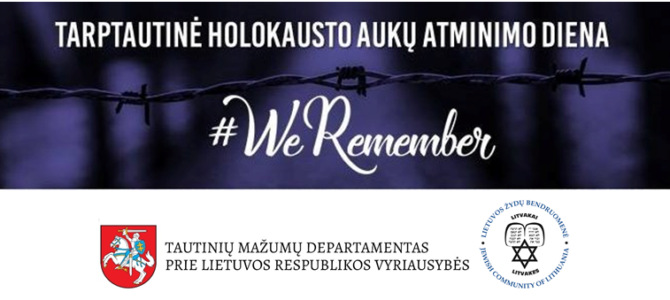
CONFERENCE DEDICATED TO INTERNATIONAL HOLOCAUST REMEMBRANCE DAY AND COMBATING DISCRIMINATION
Artis hotel, Vilnius, Totorių street no. 23, Vilnius, Lithuania
January 25
[10:30 – 11:00 A.M. registration]
11 A.M.
Welcome speeches:
Lithuanian Minister of Foreign Affairs, H.E. Mr. Linas Linkevičius
Faina Kukliansky, President, Lithuanian Jewish Community
Vida Montvydaitė, DIrector, National Ethnic Minorities Department
Julius Meinl, World Jewish Congress Commissioner for Combating Antisemitism
11:15 A.M. – 12:15 P.M. PART I:
Jews, Lithuanians and the Greatest Tragedy of the 20th Century. Lessons for Future Generations.
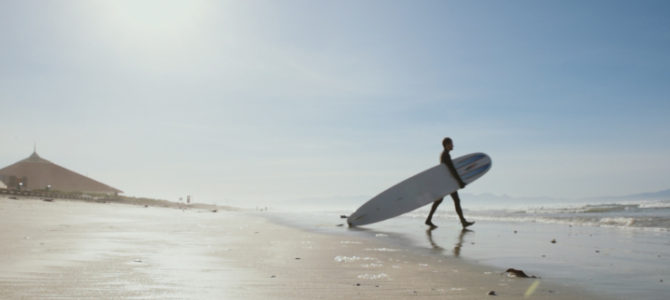
Ieva Balsiūnaitė, one of the producers of the film The Snowball Rolled South about Litvaks in South Africa, gave an interview to Lithuanian public television on the eve of its Lithuanian premiere on Lithuanian TV. The film will be screened at the Tolerance Center of the Vilna Gaon State Jewish Museum, Naugarduko street no. 10/2, Vilnius, at 6:00 P.M. on January 17, 2019, to be followed by a discussion. The film contains Lithuanian and English passages and Lithuanian subtitles will be provided at this screening. The running time is 52 minutes. Entrance is free.
§§§
The majority of Jews living in South Africa come from Lithuania, and many of them are celebrated artists, businesspeople, public figures. A few have been Nobel prize winners and famous actors, even an Oscar nominee. Journalist, documentary maker and one of the makers of the film The Snowball Rolled South Ieva Balsiūnaitė told Lithuanian public television about this. Some of the film’s heroes were born in Lithuania, others in South Africa, so their connections with Lithuania are varied. The older generation still finds it hard to believe how all the warm and nice stories became the Holocaust, and the main characters speak about this excitedly, emotionally and frankly, Balsiūnaitė said.
You’d probably agree that few people in Lithuania know there are so many Litvaks in South Africa. How did this topic attract you and your colleagues and what made you make a documentary film about it?
We made the film as a team with Jonas Jakūnas and Sofija Korf, and we developed the concept with two journalists and documentarians, Viktorija Mickutė and Lukas Keraitis.
This topic first grabbed my interest a long time ago when I read an article about how almost all Jews living in South Africa have Lithuanian origins. That immediately raised a great many questions: why did so many people come from Lithuania specifically, and not from neighboring countries? What is the Litvak experience in the Republic of South Africa, and is there still some connection with Lithuania?
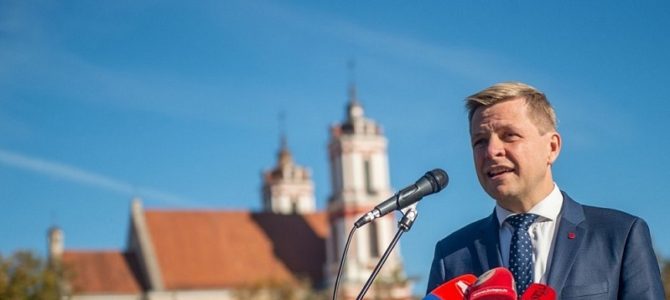
December 10, 2018 LRT.lt
Vilnius mayor Remigijus Šimašius’s committee has made a list of candidates for the city council and is preparing to rate the candidates. The “For Vilnius in Which We Take Pride” committee’s list currently has 90 residents of Vilnius from various walks of life. The list could be expanded until the rating is made on December 11, a press release from the mayor’s team said.
The list of candidates includes Linas Kvedaravičius, Audronis Imbrasas, Vincas Jurgutis, Vytautas Mitalas, Renaldas Vaisbrodas, Donalda Meiželytė, Gediminas Jaunius, Redita Dominaitytė, Domininkas Velička and others.
In an earlier meeting by this movement, Šimašius was confirmed by the comittee as a candidate for a new term as mayor, leading the list of candidates into elections. Other positions on the list should become clear next week after the ratings are released.
“I am certain there was success in forming a very strong list, and the voters will be the judge. Our strength is our representation of diverse walks of life and fields of vital concern to the city. On the list we have people from the cultural, athletic and urban development fields, we have social activists, human rights activists, teachers, academics and representatives of the ethnic communities,” mayor Šimašius said.
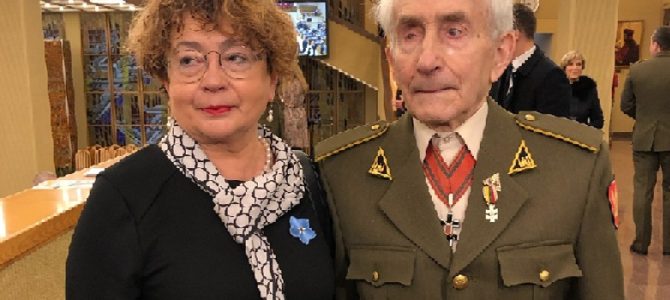
January 13 is an official holiday in Lithuania, the Day of the Defenders of Freedom, marked to commemorate those who died during Soviet military operations in Vilnius on that day in 1991. The Soviets attempted to overthrow the democratically-elected government of Lithuania through military force following Lithuania’s declaration of independence on March 11, 1990.
Loreta Asanavičiūtė, Virginijus Druskis, Darius Gerbutavičius, Rolandas Jankauskas, Rimantas Juknevičius, Alvydas Kanapinskas, Algimantas Petras Kavoliukas, Vidas Maciulevičius, Titas Masiulis, Alvydas Matulka, Apolinaras Juozas Povilaitis, Ignas Šimulionis and Vytautas Vaitkus were killed at the TV tower in Vilnius in the early hours of January 13. Soviet troops also surrounded and seized the Lithuanian Radio and Television building located in a different part of Vilnius. Over 700 unarmed civilians were wounded during the events of January 13.
Ceremonies were held throughout Lithuania and at the parliament to mark the holiday and the Freedom Prize was presented by speaker of parliament Viktoras Pranckietis to seven post-World War II Lithuanian partisans at the parliament this year.
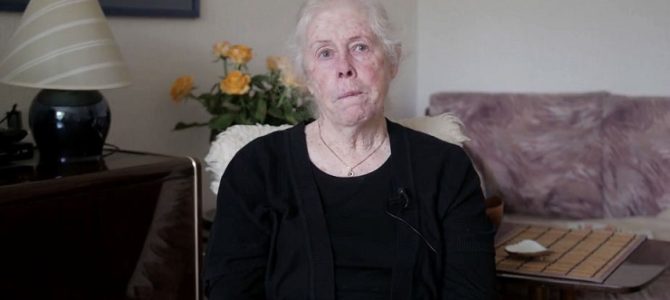
15min.lt

When she was three, Julijana Zarchi was smuggled out of the ghetto thanks to outside rescuers and so escaped death, but her family’s story begins in Germany and leads to the cotton fields of distant Tajikistan. Julijana and her mother were deported there. Zarchi, who related her and her family’s story for the program of Kaunas as the European capital of culture in 2022, said Naziism and Stalinism both had a bearing on the fate of her family. All of her closest family members except her mother were murdered. “The Nazis murdered all of them. Three times. That’s about how many mass murders there were,” she said. “I can’t find my relatives on my father’s side anywhere, and as one approaches old age one wants that sort of connection. I can’t find a single one, although the family was very large and the surname is a rare one. My grandfather, his brothers and sisters and many children…”
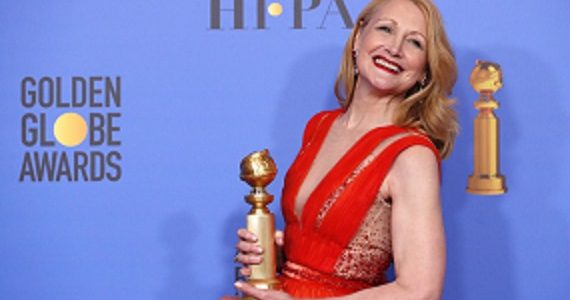
Patricia Clarkson, winner of the Golden Globe award for best supporting actress in a series, miniseries or television film in 2019 for her role as Adora Crellin in the HBO series Sharp Objects, says Lithuania is part of her, and she grew up with stories of her baba, the great-grandmother who came from Lithuania and died before she was born, according to the Lietuvos Rytas newspaper.
Born in New Orleans in 1959, Clarkson was graduated from the Yale School of Drama with an MFA.
Clarkson’s great-grandmother Sophie Bass-Berengher was born in the Kaunas guberniya in 1886. Her daughter Sophie (née Berengher) and Johnny Brechtel had daughter Jacquelyn Brechtel Clarkson. born in New Orleans on January 17, 1936. She served as a councilwoman on the New Orleans city council and has been the honorary counsel of the Republic of Lithuania in New Orleans since late 2014. She is also Patrica Clarkson’s mother.
Full story in Lithuanian here.
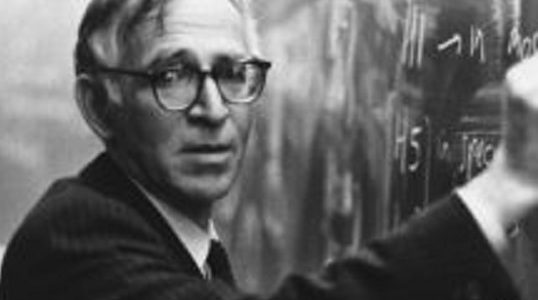
One of several Lithuanian Jews to have received the Nobel prize, Aaron Klug passed away November 20, 2018, at the age of 92.
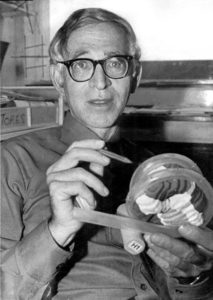
Klug was born in Želva (aka Zelva, Zelvas) near the town of Ukmergė (Vilkomir) in the Vilnius region of Lithuania on August 11, 1926, to Lazar and Bella (née Silin) Klug. Lazar Klug received both a secular and Jewish religious education, and raised and sold cattle as his father did. Aaron Klug wrote he remembered nothing of his place of birth, and the family moved to Durban, South Africa, when Aaron was about two. Aaron Klug was graduated from the University of Witwatersrand in Johannesburg with a bachelor’s degree in physics, chemistry and biology. He married dancer and choreographer Liebe Bobrow in 1948. Klug received a master’s degree from the University of Cape Town where he did work on X-ray crystallography. He then went to the UK, where he received a PhD in solid state physics at the University of Cambridge in 1952. Klug then worked with X-ray crystallographer Rosalind Franklin at Birkbeck College, University of London, exploring the structure of the tobacco mosaic virus. The nucleoproteins of the virus were at that time too big for imaging with X-ray crystallography but too small to see with optical microscopes. Electron microscopes could only provide two-dimensional images, and Klug pioneered a method for making 3-D images, called crystallographic electron microscopy, for which he received the Nobel prize in chemistry in 1982. He was knighted by Queen Elizabeth II in 1988. Besides his many other contributions, he and his colleagues were responsible for mapping about one third of the human genome in the Human Genome Project. He taught at Cambridge and served as the president of Britain’s Royal Society from 1995 to 2000. He also worked with Francis Crick, who received the Nobel prize with Watson for discovering the helical structure of DNA.
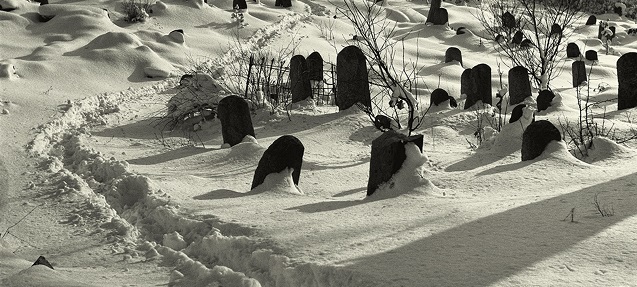
Roža Zinkevičienė, the principal of the Saulėtekis school in Vilnius, invites the public to the opening of a photography exhibit there called “Monument to a Monument (Jewish Cemetery Destroyed in 1964)” by photographer Rimantas Dichavičius. The opening is to take place at 10:00 A.M. on January 17, 2019. The school is located at Kaminkelio street no. 10 in Vilnius. The exhibit is dedicated to marking International Holocaust Remembrance Day.
Roza Bielauskienė will speak about the time of the Book of Judges in Jewish history at 1:00 P.M. on Sunday, January 13, 2019, at the Lithuanian Jewish Community.
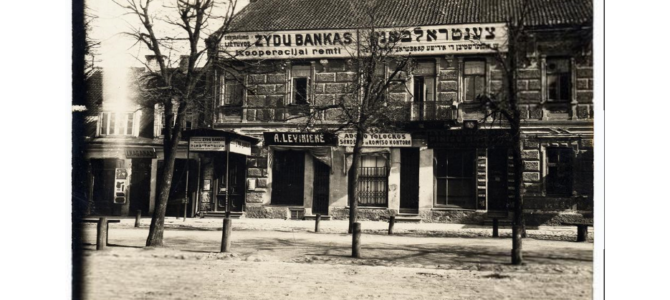
by Ona Biveinienė
Lithuanian Jews since olden times engaged in lending at interest. The charter of rights Vytautas the Great granted the Jews of Brest-Litovsk in 1388 included the right to loan money at interest, a rather new thing in the Grand Duchy at that time, along with the right to practice Judaism. According to the charter, “a Jew may accept any object brought him as collateral, no matter what the item is called, without question, except for bloodied or wet clothing and Church clothing and vessels, which he should in no way accept.”
For several centuries Jews were the main lenders, saving neighbors fallen on hard times by loaning them money, at interest, of course.
Lithuania’s declaration of independence on February 16, 1918, provided a favorable environment for Jews living here to expand customary and create new businesses. The Jewish people, as no other, seized upon the opportunity; they attempted to restore and expand the shops, workshops and factories they had before World War I. Many courageously started new businesses and in many cases were the first in Lithuania to engage in little known or unprecedented enterprises.
Full story in Lithuanian here.
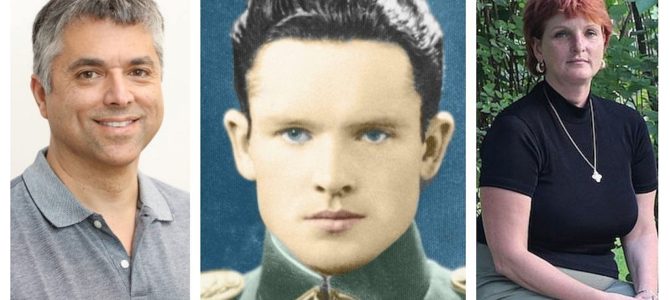
War Hero or Nazi Collaborator? Family Partners with Victim’s Kin to Expose Truth
Vilnius trial will see whether Jonas Noreika was whitewashed by Lithuania’s Genocide and Resistance Research Center; his granddaughter says he did his best to help Nazis kill Jews

by Robert Philpot
LONDON–Seventy years after he was shot by the Soviets, the reputation of Jonas Noreika goes on trial in Lithuania next week.
Noreika–a hero to many in the Baltic state for resisting Communist subjugation of their country–stands accused of being a Nazi collaborator complicit in the Holocaust.
The case before the Vilnius Regional Administrative Court charges the state-funded Genocide and Resistance Research Center of Lithuania with intentionally distorting the role of Noreika in the murder of Jews.
It has been brought by Grant Gochin, a Lithuanian citizen living in the US whose relatives were among Noreika’s victims.
In an extraordinary twist, Gochin’s effort is being actively supported by Noreika’s granddaughter. Silvia Foti has spent more than two decades investigating “General Storm,” as her grandfather is known to many in his former homeland. Her conclusion is brutal: “Jonas Noreika willingly played a role in cleansing Lithuania of Jews. He did everything in his power to help the Nazis kill Jews, and nothing to stop them.”
Full story here.
Note: The trial was postponed by the court, allegedly at the Government’s request, until March 5.
A meeting of the board of the Goodwill Foundation has resolved to fund the most significant Lithuanian Jewish projects, approved spending limits for 2019 and planned the 2019 budget for administrative costs for the foundation.
One of the more interesting projects is on-going archaeological exploration of the Great Synagogue site in Vilnius. There is also a project to commemorate the Jurbarkas synagogue with a statue by the sculptor Dovydas Zundelovičius. The foundation will also remember conductor, teacher and professor Saulius Sondeckis with the publication of a monograph.
The Goodwill Foundation board also addressed the issue of ownership of the former Tarbut gymnasium building at Pylimo street no. 4 in Vilnius, the headquarters of the Lithuanian Jewish Community.
Full text here.
The Lithuanian Jewish Community has received the following message and we express our deepest condolences over the death of Judith Schlesinger, wife of the esteemed rabbi Elyakim Schlesinger, president of the Committee for the Preservation of Jewish Cemeteries in Europe.
§§§
It is with great pain and sadness that we announce the passing of the great Lady Rebbetzin Mrs. Judith Schlesinger, wife of our esteemed president Rabbi Elyakim Schlesinger after recent illness.
The esteemed Rabbi Elyakim Schlesinger and his sons including Rabbi Yeshaya Schlesinger are spending the week of shiva (seven days of mourning) at their house.
With best wishes,
Rabbi Abraham Ginsberg
executive director, Committee for the Preservation of Jewish Cemeteries in Europe
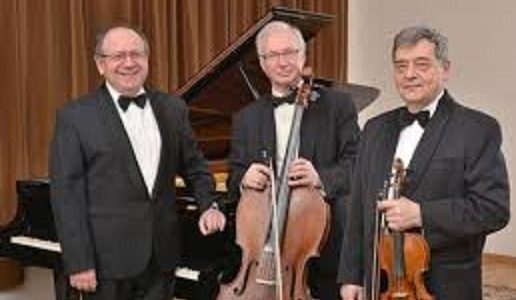
The Lithuanian musicians support fund and association Atgaiva held a concert at the Church of Sts. John January 7, 2019, and the audience filled the church.
Excellent and well-known musicians performed: the trio Musica Camerata Baltica with Leonidas Melnikas, Boris Traub and Valentinas Kaplūnas, and solo vocalist Judita Leitaitė.
The wonderful acoustics of the church, the high level of performers and the program of works selected for the concert all cast a spell upon the audience. The applause endured for a long period as the audience thanked the performers for this unique, enchanting and sublime classical music concert.
Lithuanian Jewish Community chairwoman Faina Kukliansky sincerely thanks the concert organizers and performers.
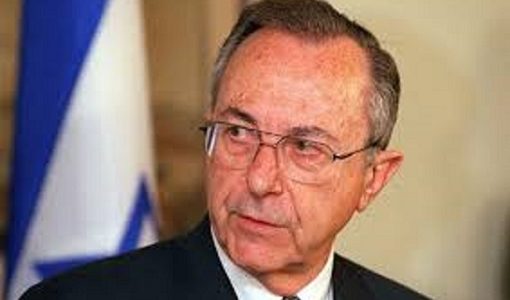
by Sergejus Kanovičius
The internet didn’t exist yet, and the way to connect from Israel with parents and friends left in Lithuania was by fax or telephone. There wasn’t a surplus of money and both means were very expensive, so hearing the voice of a loved one was the greatest gift; letters are fine, but human nature it seems is such that we need living emotion, moments which dissolve in the past… When you hear the voice of your Father, or Mother, or grandfather, it feels as if you are with them, much more than reading a letter which has been in transit for a long time. Sometimes the people who helped us in so many ways in saving our son knew the longing for loved ones, they knew what longing means, because they themselves had experienced these separations and knew what they meant. The independency of Lithuania was going slowly, so it was expensive to call from Israel to Lithuania and from Vilnius to Tel Aviv. As I remember it, from Vilnius you longer had to wait for a previously ordered international call, all you had to do was dial 8, wait for the tone and then enter the number. But it wasn’t raining and isn’t raining money anywhere, neither there where rivers of milk flow along banks of honey, nor there where pack-ice gently caresses the banks of the Neris. Sometimes the worst thing you could pull out of the mail box was a nostalgic numerical reminder for some month, sometimes the telephone bills were such that you wanted to take that apparatus to a bank and lock it in the safe.
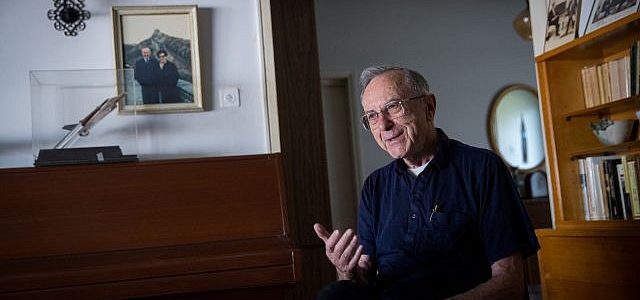
by Haviv Rettig Gur
“I loved you as a son loves a father,” says Netanyahu of his mentor, a founding member of Likud credited with shepherding advances in Israel’s military capabilities
Moshe Arens, an English-speaking US-educated aeronautical engineer who rose to become Israel’s three-time defense minister and mentored a young Benjamin Netanyahu at the start of his career, died on Monday at age 93.
Born in Kaunas, Lithuania, in 1925, Arens moved with his family to Riga, Latvia, in 1927, then to the US just before World War II in 1939.
Full story here.


The Musica Camerata Baltica/Jerusalem of Lithuania trio of Leonidas Melnikas on piano, Boris Traub on violin and Valentinas Kaplūnas on cello, accompanied by mezzo-soprano Judita Leitaitė and conducted by musicologist Laimutė Ligeikaitė will perform a program including works by Pachelbel, Haydn, Ravel, Čiurlionis, Handel, Franck and others at 6:00 P.M. on Monday, January 7, at the Church of Sts. Johns at Vilnius University. Tickets are 5 euros, 3 for students and seniors and entrance is free to students and teachers from music schools.
Senior citizens of the Šiauliai Regional Jewish Community and friends met December 27 to talk and watch the film “Dėdė Chackelis” together, ushering out the old year and preparing for 2019.
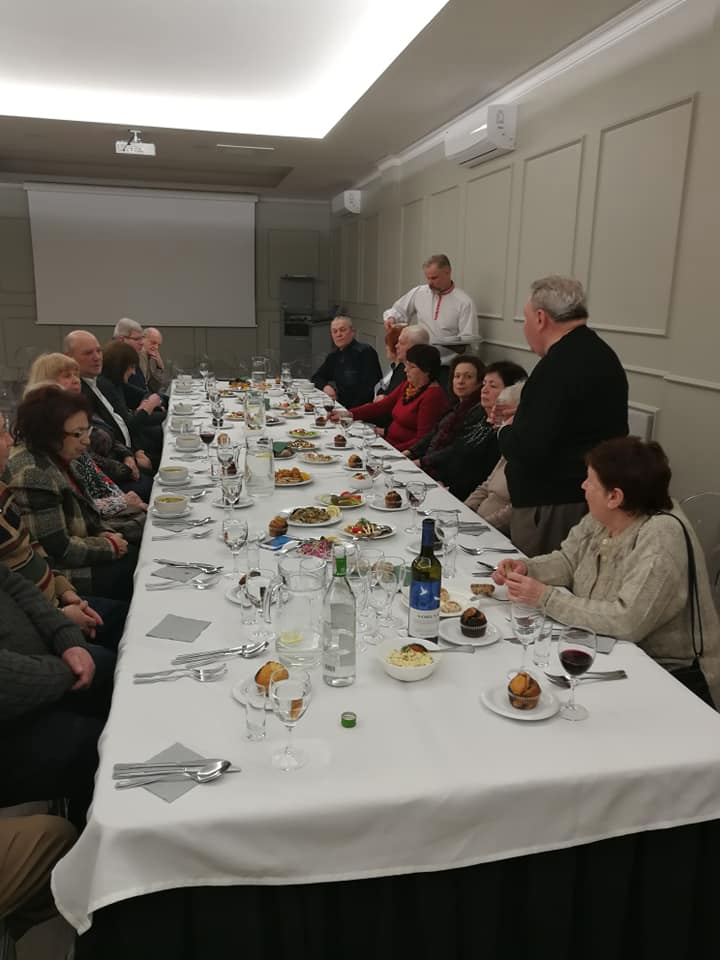
This year the Union of Former Ghetto and Concentration Camp Inmates lost ten of our members. The tenth was Anastazija Baltusevičienė of Kaunas, mother of Robertas Baltusevčius. She was born June 17, 1942, and passed away on December 25, 2018. Our deepest condolences to her son Robertas and sisters Filomena, Liucija, Elžbieta and Elena.